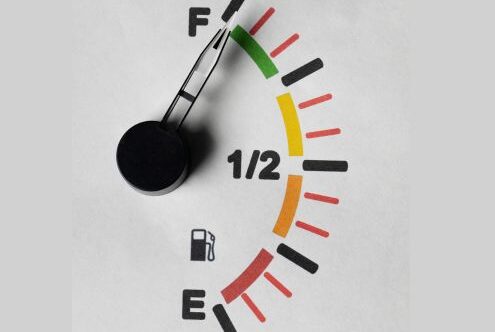Introduction
Increase car mileage: If you’re looking to save on fuel costs and get more out of each tank, improving your car’s mileage is key. Car mileage, or fuel efficiency, measures how far your car can travel per unit of fuel.
No matter what type of car you drive, there are simple ways to boost your mileage. We discuss 6 ways to increase car mileage In this blog, we’ll look at the factors that affect fuel efficiency and share six practical tips to help you get the most out of your vehicle.
contents
Table of Contents
How Mileage Works in a Car
- Engine Performance: A well-maintained engine runs more efficiently, using less fuel to produce the same power.
- Driving Habits: Smooth, steady driving without aggressive acceleration or braking helps conserve fuel.
- Tire Pressure: Properly inflated tires reduce rolling resistance, improving fuel efficiency.
- Vehicle Condition: Regular maintenance, such as oil changes and air filter replacements, ensures the engine is operating optimally.
- Weight: The heavier the car, the more energy it requires to move, which can decrease mileage.
6 Ways to Increase Car Mileage
Regular maintenance is key to ensuring your car runs efficiently. Change the oil as per the manufacturer’s recommendation, replace air filters when needed, and make sure spark plugs are in good condition. A well-maintained engine burns fuel more efficiently and helps your car achieve better mileage.
- Reduce Unnecessary Weight
Excess weight in your car can lower its fuel efficiency. If your car is full of items you don’t need, remove them. Every extra 100 pounds can reduce your fuel economy by 1-2%. Lightening your load will ease the strain on the engine and help improve your mileage. - Use the Right Engine Oil
Always choose the right engine oil as recommended by your car’s manufacturer. The correct oil reduces friction within the engine, allowing it to run more smoothly and efficiently, which directly impacts fuel efficiency. Check your car’s manual to know the ideal oil grade and viscosity for your vehicle. - Drive Gently and Smoothly
Aggressive driving, such as rapid acceleration, sharp braking, and speeding, wastes fuel. Adopt a smoother, more relaxed driving style. Accelerate gradually, maintain a steady speed, and avoid sudden stops. Anticipating traffic and driving with patience can help you save fuel and get more miles out of every tank. - Check Tire Pressure Regularly
Under-inflated tires can increase rolling resistance, causing the engine to work harder and use more fuel. Over-inflated tires, on the other hand, can wear out unevenly and affect handling. Make sure your tires are inflated to the correct pressure, as indicated in your car’s manual, to optimize fuel economy and ensure safety. - Limit Air Conditioning Use
Using the air conditioning can significantly increase fuel consumption. It puts additional strain on the engine, especially when driving at low speeds. If possible, use natural ventilation or open the windows when the weather is mild. Reserve air conditioning for hotter or more humid conditions, or when you’re driving at high speeds on highways, where the drag from open windows would be less efficient.
Conclusion
By following these simple tips, you can improve your car’s fuel efficiency, save money on fuel, and reduce your car’s environmental impact. Regular maintenance, lightening the load, and driving smartly all play crucial roles in maximizing mileage. With a little effort, you’ll notice the difference in your car’s performance and wallet.
FAQs:
How can we increase car mileage?
To increase your car’s mileage, focus on regular maintenance, drive smoothly, reduce excess weight, keep tires properly inflated, and avoid unnecessary use of air conditioning.
Does AC reduce mileage?
Yes, air conditioning can reduce mileage by putting extra load on the engine, causing it to consume more fuel.
What gives a car more mileage?
Proper car maintenance, light driving habits, correct tire pressure, and using the recommended engine oil all contribute to better mileage.
How to improve car fuel average?
Improving your car’s fuel average involves regular maintenance, careful driving, and ensuring your car is not carrying unnecessary weight.
Which speed is good for Increase car mileage?
Maintaining a steady speed within the recommended speed limits is best for mileage. Typically, driving at lower to moderate speeds (50-60 mph or 80-100 km/h) maximizes fuel efficiency.
How much petrol is required for 1 hour of AC?
The amount of fuel used for running air conditioning depends on your car’s engine size and efficiency. Typically, air conditioning uses around 10-20% more fuel when compared to driving without it.
When to use AC in a car?
Use the AC when the temperature is high or when the weather is too humid. Avoid using AC during short drives or at low speeds unless necessary. Does fan speed in cars consume fuel?
The fan speed itself doesn’t consume a significant amount of fuel. However, using the fan with the air conditioning system on can increase fuel consumption

4 thoughts on “Increase car mileage: 6 Ways to Boost Fuel Efficiency in 2025”